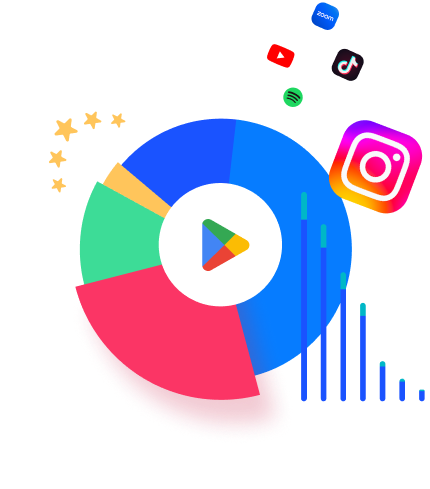App Market Overview: Chinese Mobile Apps on Google Play
- How Many Mobile App Developers Are From China? There are 0 Chinese mobile App developers active on Google Play. Learn more!
- How Many Mobile Apps Have Been Built by Chinese Developers? Out of the 0 apps available on Google Play, 0 were built by Chinese developers. Learn more!
- How Many Downloads Do Chinese Mobile Apps Have on Average? Chinese mobile Apps average 0 downloads. Learn more!
App Ratings: Chinese Mobile Apps
Apps Versus Games: China
How Do Chinese Mobile App Developers Monetize their Apps?
Chinese mobile App publishers monetize their apps in the following ways:
- <1% of Apps must be purchased.
- <1% leverage mobile advertising.
- <1% have in-app purchases.
Globally, however, mobile App publishers monetize their apps like so:
- <1% of Apps must be purchased.
- <1% leverage mobile advertising.
- <1% have in-app purchases.
How Many Chinese Mobile Apps Are Available on Both iOS and Android?
The Most Popular SDKs and Android App Permissions
Most Popular Mobile Apps: China
- Most Popular Mobile Apps in the China: , , and . See the full list!
- Top Grossing Mobile Apps in the China: , , and . See the full list!
- Most Popular Social Apps in the China: , , and . See the full list!
- Most Popular News Apps in the China: , , and . See the full list!
- Most Popular Travel Apps in the China: , , and . See the full list!
- Most Popular Shopping Apps in the China: , , and . See the full list!
- Most Popular Lifestyle Apps in the China: , , and . See the full list!
- Most Popular Business Apps in the China: , , and . See the full list!
Get Even More Mobile App Market Intelligence!
The 42matters Explorer enables you to browse the global app market, with insight into publisher details, app metadata, performance metrics, technical insights, and more.
Our suite of APIs, file dumps, and other app and SDK intelligence tools can help you dig even deeper, with intelligence compiled from 12 leading mobile and connected TV (CTV) app stores, including Google Play, the Apple App Store, Amazon Appstore, Huawei AppGallery, Tencent App Store, Roku, Apple TV, Fire TV, Google TV, Samsung Smart TV Apps, the LG Content Store, and Vizio SmartCast Apps.
To learn more, set up a demo with our app market experts!



